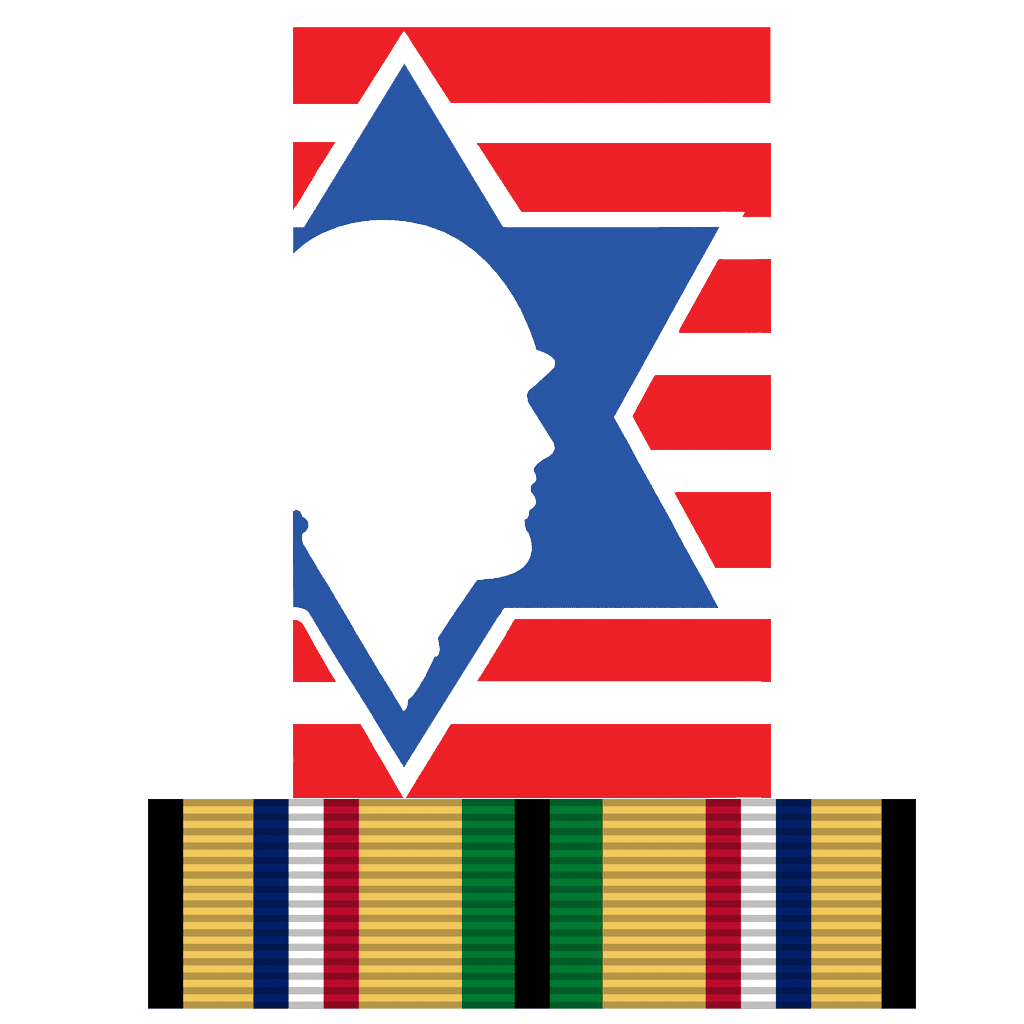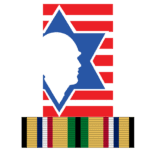 30th Anniversary of Operation Desert Storm:
30th Anniversary of Operation Desert Storm:
American Jewish Service Members in the Gulf War
Henry Frank, 304th Civil Affairs Group
My unit, 304th Civil Affairs Group (now, Brigade) was alerted in August, 1990. Apparently Civil Affairs was not deemed essential for the “speed bump,” and we were not called at that time.
We were re-alerted in December, and I had telephone duty on Xmas day. Then, contrary to “the plan,” all Civil Affairs units were ordered to report to Fort Bragg. We had to arrange for carrier trucks to transport our heavy vehicles, and the unit members rode via bus to Fort Bragg.
We were housed in close proximity double-bunks, and had to do such things as rifle familiarization, and other soldierly things. Being in such close proximity, we all began to come down with each other’s illnesses.
The third week of January, we boarded planes for Saudi Arabia. While waiting on the tarmac for buses, there was a loud explosion. We were ordered to MOPP up (protective masks and clothing) and to enter the terminal building. Apparently, the explosion was a Patriot Missile taking off. That became apparent when everybody else in the terminal was walking around unconcerned about any supposed threat. The shocking part was my ability to see CNN on a TV that was showing the event in real time.
On our second contingent, which was about two hours behind us, the officer in charge ordered everyone to MOPP up, in spite of the fact that the pilot would not have landed if there had been any danger. One of our NCOs apologized to the Air Force staff for leaving them with a huge mess of packing materials to clean.
We were stationed in the Al Khobar complex, which became notorious several years later because a terrorist blew up a car bomb there.
The Al Khobar complex consisted of dozens of three-story buildings containing apartments designed by the Saudis to be occupied by nomadic Bedouins, to make them settle down and become “modernized.” The intendees wanted nothing to do with “modernity,” and refused to move in. So, the complex sat idle awaiting occupation by Americans during Desert Storm. We were very comfortable with bed rooms, kitchens, and indoor bathrooms. (The males now understood why females appreciate bidets.) We had catered breakfasts and suppers, and MREs for lunch.
Members of my unit had many and varied duties. My job was to receive all the situation reports (sit reps) from the field, and consolidate them into a report which my boss could present to our Commander.
I had one special mission. Japan donated some vehicles for our use. Twelve vehicles were assigned to doctors who would be going into Kuwait as soon as the combat ended. The doctors were up the coast in Ad Damman, but were expecting the vehicles (parked near Al Khobar) to be delivered to them. I was ordered to find 12 drivers who could drive stick shift, to sign out the vehicles from the motor pool, and to deliver them to Ad Damman. It proved difficult to find 12 stick shift enabled drivers, then to get the vehicles released from the motor pool. By the time we were ready to drive, it was getting dark. I directed the drivers to park in our parking lot, and we would leave first thing after breakfast. I got some heat for this decision, but it was war time, and it turned out to be right. On the trip up, one of the vehicles decided not to go. However, one of the drivers used an inventive, use what you’ve got, tactic and managed to convince the vehicle to cooperate. I was glad all this went on in the daylight.
I was not personally involved in another significant incident. An explosion, several miles from our billets, killed and wounded many soldiers in a unit from Western Pa. My unit had to go through all their personal effects and prepare them from shipment back home. This was the worst casualty event of Desert Storm, and it happened well in the “rear.”
My unit had a significant role in preparing vehicles for return to the U.S. The vehicles had to be thoroughly cleaned and inspected. The U.S. Agriculture Department had a well-founded fear of desert fauna and flora getting loose in the U.S.
Our Civil Affairs training had been such that there were, for us, no cultural surprises. For example, church services were held in underground garages, since Islam is the only legitimate religion in Saudi Arabia.
I attended Passover services on the “Love Boat,” a liner moored in Bahrain serving R&R for all Desert Storm participants. The Chaplain smuggled in Haggadot, wine, matzah, and even a small Torah. We were nervous returning to Saudi Arabia with that Torah on the bus. However, the authorities gave only a cursory inspection. One disappointment, the Saudi border officials refused to stamp my passport (I wanted a souvenir). Apparently, we did not officially exist, and letting our bus back into Saudi was as far as they were prepared to go.
Several of us attended Shabbat services held in a U.S. facility that was not being used during the conflict. The location was disclosed only to those with a need to know. The organizer, a First Sergeant from the Support Command, came armed with a pistol, but there were no incidents. A picture of our group appeared in the 1992 JWV calendar, but I do not appear in that picture. One participant, who does appear in the picture, was a surgeon from Walter Reed Medical Center. He said he had put himself through medical school by employment as a “ba-al kriah.” I understand he passed away several years after Desert Storm.
Our trip home, via Fort Bragg for out-processing, was uneventful, and we had a wonderful reception at Philly International.
